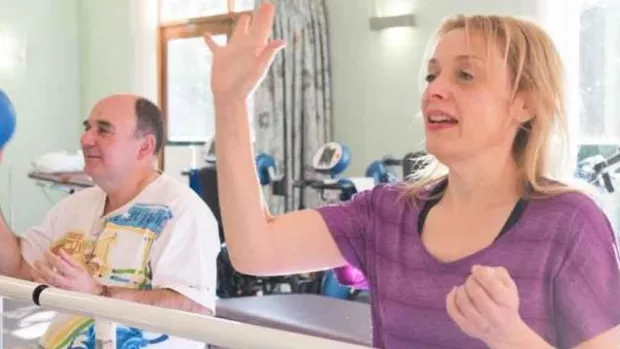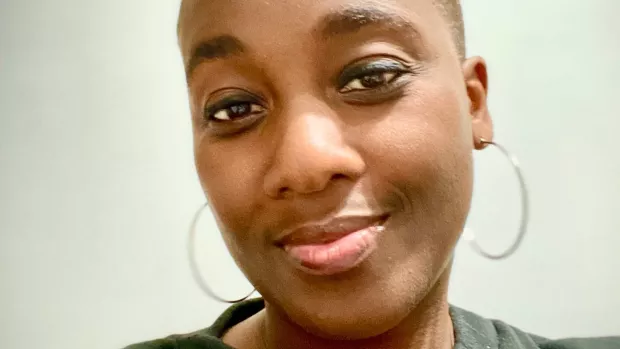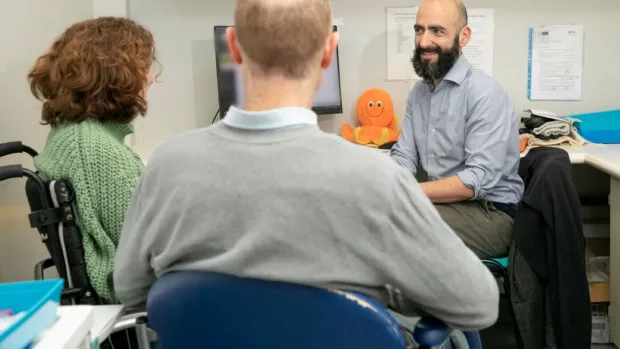
“I hope it started conversations” – Trishna on Selma Blair in Dancing with the Stars
Actor Selma Blair, who lives with MS, recently took part in the US version of Strictly Come Dancing, Dancing with the Stars. We hear Trishna's take on what this means for Selma and people affected by MS.
Actor Selma Blair, who lives with MS, recently took part in the US version of Strictly Come Dancing, Dancing with the Stars. We can’t watch the show in the UK, but Selma’s powerful performances got attention online from around the world.
Our Ambassador, Trishna, also lives with MS and danced on The People’s Strictly for Comic Relief in 2015. We asked her to share her thoughts on what the experience might’ve been like for Selma.
How do you think Selma would’ve felt going into Dancing with the Stars?
Everyone’s journey with MS is different, so I can only go by how I felt going into Strictly. I felt a mixture of excitement, nerves and determination. I wanted to prove to myself I could take on this challenge and do it well.
Selma showed us she’s a very determined person who wanted to challenge herself. You don’t take on Strictly or Dancing with the Stars thinking it’ll be a walk in the park. It's tough physically and mentally.
What do you think the experience will have been like for her?
I found appearing in the Strictly special really intense. So for Selma competing in the main show it’ll have been even more intense. I had four months to learn two dances, but Selma had to learn a new dance each week. And it’ll have been less than a week with the extra filming.
Selma would’ve needed to build trust with her professional dance partner Sasha really quickly. You need that trust when you’re challenging yourself physically as someone living with MS. They have to understand where you can push yourself and what could be too much. By the end of the show you know each other very well.
What did you do to manage your symptoms while taking part in Strictly?
Fatigue was my main challenge. And that would trigger other symptoms such as cog fog and problems with my balance. I had to be very open about how it was affecting me. Because getting the right support from my dance partner Aljaz and people around me was crucial.
As much as I wanted to push myself I also needed to know when to take a break. Many of us living with MS know how disappointing it can be to miss out on something we’d love to do. It’s something I’ve got used to and I imagine that could be the same for Selma.
Do you think it’s important celebrities affected by MS use their public platform to raise awareness?
I think if someone has a public profile and they’re comfortable with sharing their experience of MS, then it’s a good thing. I wanted to share my experience of MS when I was on Strictly. But I made sure people understood it was my experience and it won’t be the same for everyone with MS. It’s your responsibility to make sure people understand that you’re telling your MS story.
Some people might think someone dancing on television with MS makes it seem less serious. What do you think?
Everyone has the right to tell their story. And Selma has the right to go on Dancing with the Stars to tell her story.
What do you hope people will have learned about MS from watching Selma?
I hope people learned about some of the symptoms and looked for more information. But, above everything else, I hope it started conversations. I hope some people thought ‘I know someone who has MS. Let me have a conversation with them about it’.
A few people I know said their family wanted to talk to them about their MS after seeing me on Strictly. And watching Selma might be the only time some people see someone affected by MS.
What advice would you have given to Selma?
Don’t be afraid to ask for support. I found asking for support made the experience so much better because it allowed me to get the most from it. I knew I could say “I’m finding today really challenging, can we take some time out?”
It’s so important to tell people about your individual needs that’ll help you. And I would’ve told her to make the most of it. It’s a once in a lifetime experience!





